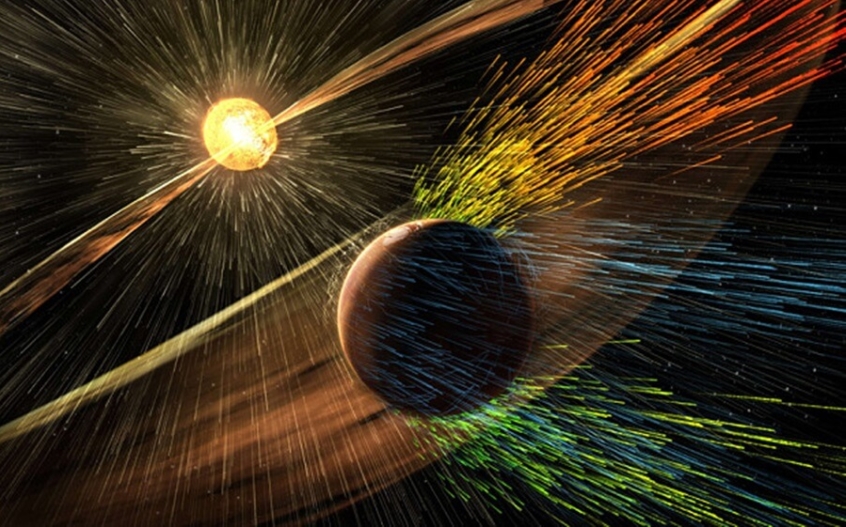
Solar wind carrying charged particles from the sun may have triggered the thinning of Mars' atmosphere, eventually causing the Red Planet to lose its ability to support life.
Ever since discovering that liquid water once existed in lakes and oceans on the surface of Mars, space scientists from the National Aeronautics and Space Administration (NASA) have not stopped determining why the planet became cold and dry.
Luckily, the space agency's Mars Atmosphere and Volatile Evolution (MAVEN) spacecraft, which has been studying Mars during the past year, brought back new data about the Red Planet.
Using information from the NASA spacecraft, scientists found out that solar winds are causing atoms in Mars' atmosphere to split, particularly on the side of the planet facing the sun, thus thinning the planet's atmosphere.
Michael Meyer, lead scientist for the Mars Exploration Programme at NASA headquarters, explained that charged particles from the sun brought by solar wind removed important gases like oxygen and carbon dioxide from Mars' atmosphere, causing it to lose the ability to support life.
"Quoting Bob Dylan: 'The answer, my friend, is blowing in the wind,'" Meyer said, as quoted on the CNN website.
The NASA researchers studied a solar ejection that happened last March 8 to capture stunning data and establish the escape rate of Mars' atmosphere during solar storms.
They found out that during increased solar activity, the escape rate is about 10 to 100 times compared to normal rates.
"Mars appears to have had a thick atmosphere warm enough to support liquid water which is a key ingredient and medium for life as we currently know it," John Grunsfeld, associate administrator for the NASA Science Mission Directorate, said in a statement, as quoted by ABC News.
"Understanding what happened to the Mars atmosphere will inform our knowledge of the dynamics and evolution of any planetary atmosphere. Learning what can cause changes to a planet's environment from one that could host microbes at the surface to one that doesn't is important to know, and is a key question that is being addressed in NASA's journey to Mars," he added.













